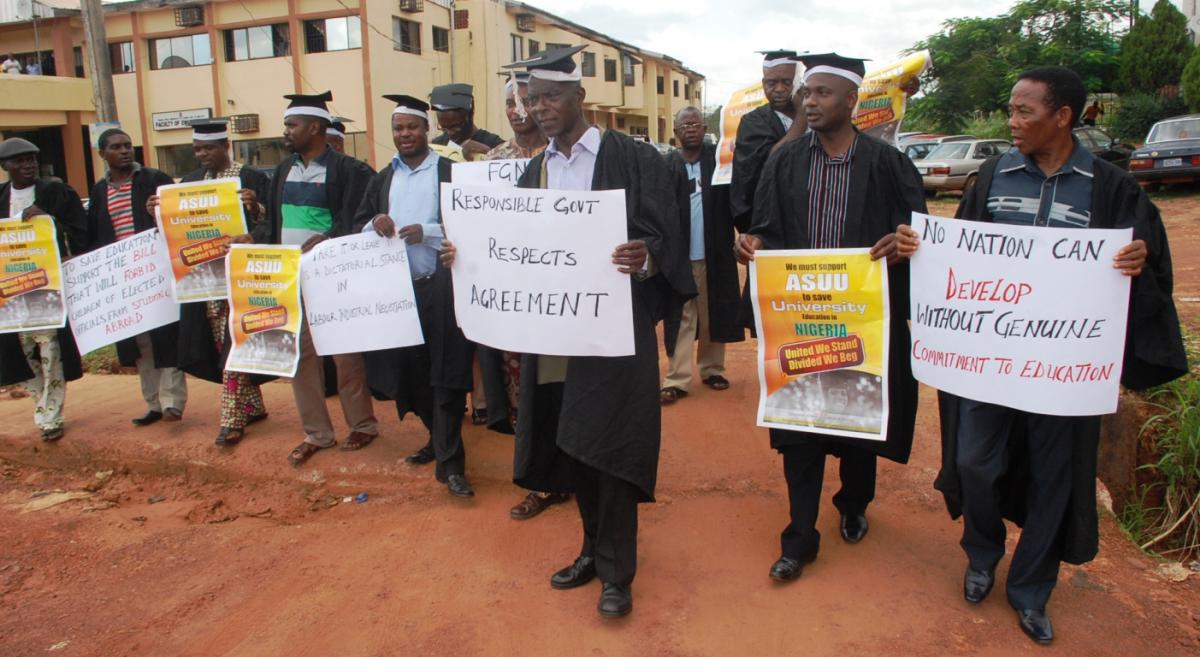There are no products in your shopping cart.
| 0 Items | £0.00 |


NATIONAL Association of Nigerian Students (Nans) leaders have warned the federal government that their members will occupy the education ministry's headquarters to protest the continued closure of institutions of higher learning across the country.
Since February, most tertiary institutions across Nigeria have been closed as a result of a strike by the Academic Staff Union of Universities (Asuu). Due to an inability of the government and the union to reach an agreement on her pay and conditions of academics, institutions have remained shut and exasperated with the situation, Nans has called for action within days.
Umar Faruk Lawal, one of the factional Nans presidents, said the patience of Nigerian students has been stretched beyond limits, following the effect of the industrial action. He said Nans therefore, demands that federal government resolves the trade dispute with Asuu within a few days, or it would mobilise students to occupy the Federal Ministry of Education premises.
Mr Lawal added: “Asuu has been on strike for almost eight months and the academic calendar cannot be used as a parameter for years of studies anymore, as students keep suffering from the long-term effect of the strike. Nigerian students’ patience has been stretched beyond its elastic limit and they have resolved to liberate themselves from the recurring effect of the industrial action by Asuu.
“Our federal government through the ministry of education should within a few working days resolve the lingering Asuu strike. We shall mobilise our students towards occupying the Federal Ministry of Education until our demands are met.”
Nans also asked the federal government to set visitation panels to address issues of all politically expelled and rusticated students, as well as increase budgetary allocation to education. Asuu had embarked on a strike since February following the inability of the federal government to accede to its demands, which were also mainly budgetary.